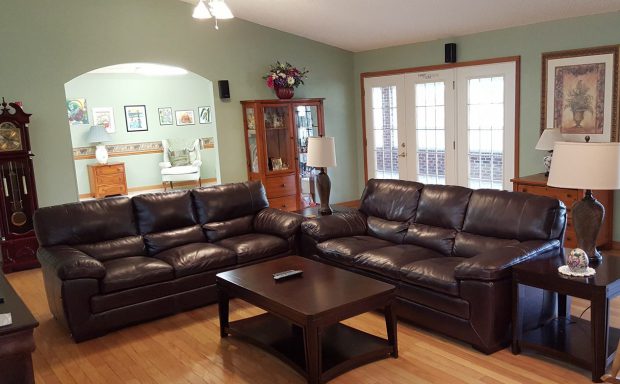November 2, 2014
Using his hands and eyes, Ronnie Rosenberg has a lot to say.
As a toddler, he was diagnosed with cerebral palsy and now, at 32, he remains nonverbal. Yet, he’s as expressive as anyone when looking ahead to birthdays and holidays at his new group home, or getting on stage to accept an award, as he did Thursday morning.
Moving from an institution in South Florida to a cottage near DeLand run by the Duvall Home has made a big difference, says his cousin and guardian, BethAnn Filingeri.
“He’s much happier,” she said. “He’s gained weight. He looks healthier. … He’s an extrovert now.”
For decades, doctors recommended families of people with cerebral palsy, autism and other disorders send their children to large institutions like Duvall Home’s Glenwood campus. But research, policy and the courts have changed that.
The government more readily funds smaller group homes intertwined in communities, promoting more interaction and normalcy in the lives of people like Rosenberg.
So the Duvall Home — started by the parents of a child with Down syndrome in 1945 — is making the shift from aging dormitories to smaller residential settings. It stands as a symbol for a system for caring for people with disabilities that has evolved in recent decades.
It outgrew its first location in Satsuma, a tiny berg in Putnam County, and moved into a 30-room, rundown hotel in rural Glenwood in 1952. Ultimately, the institution would house 250 people in two dormlike buildings, plus a workshop, chapel and swimming pool. But those structures are deteriorating, as the model for modern-day care — the group home — has been fully embraced by Duvall’s board.
Within the next year, the last of the 40 or so residents of McGaffin Hall, the last residential location on Duvall’s Glenwood campus, will be moved to group homes elsewhere in West Volusia.
Some of those residents have lived in McGaffin for decades.
Continue reading, “Duvall Home residents make transition to group homes”

